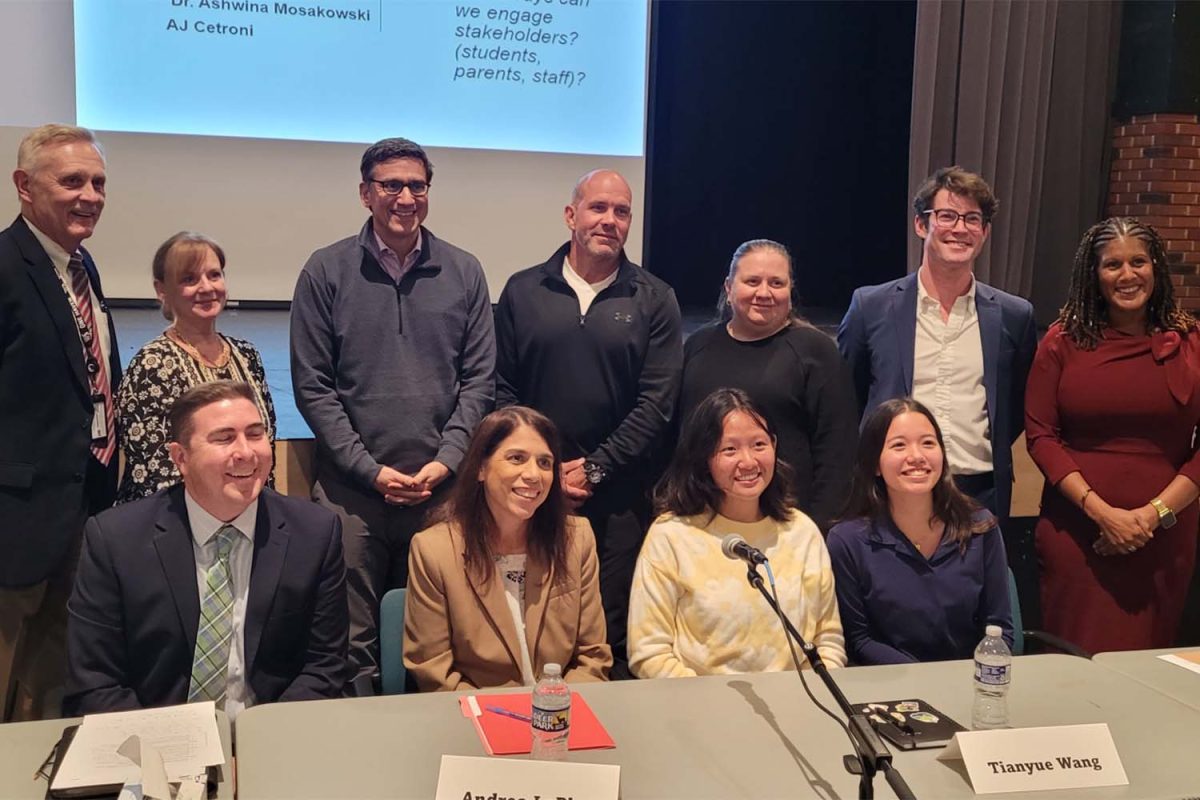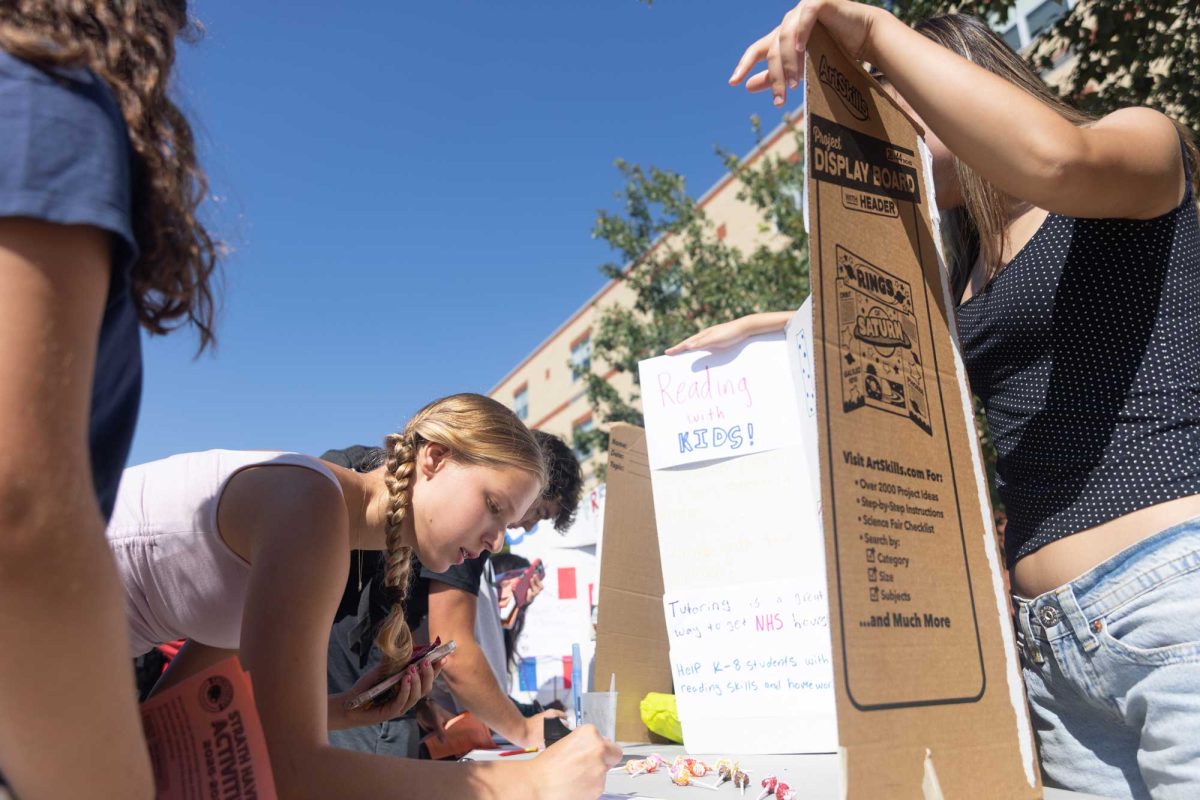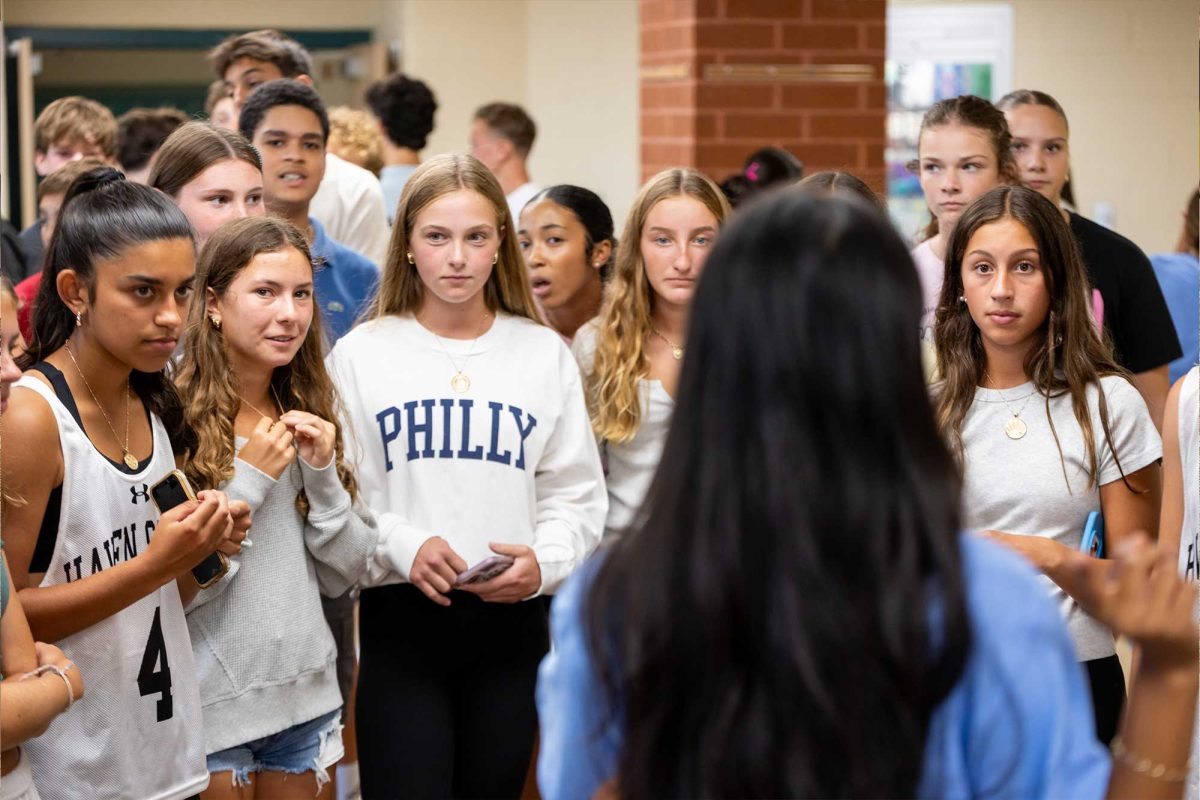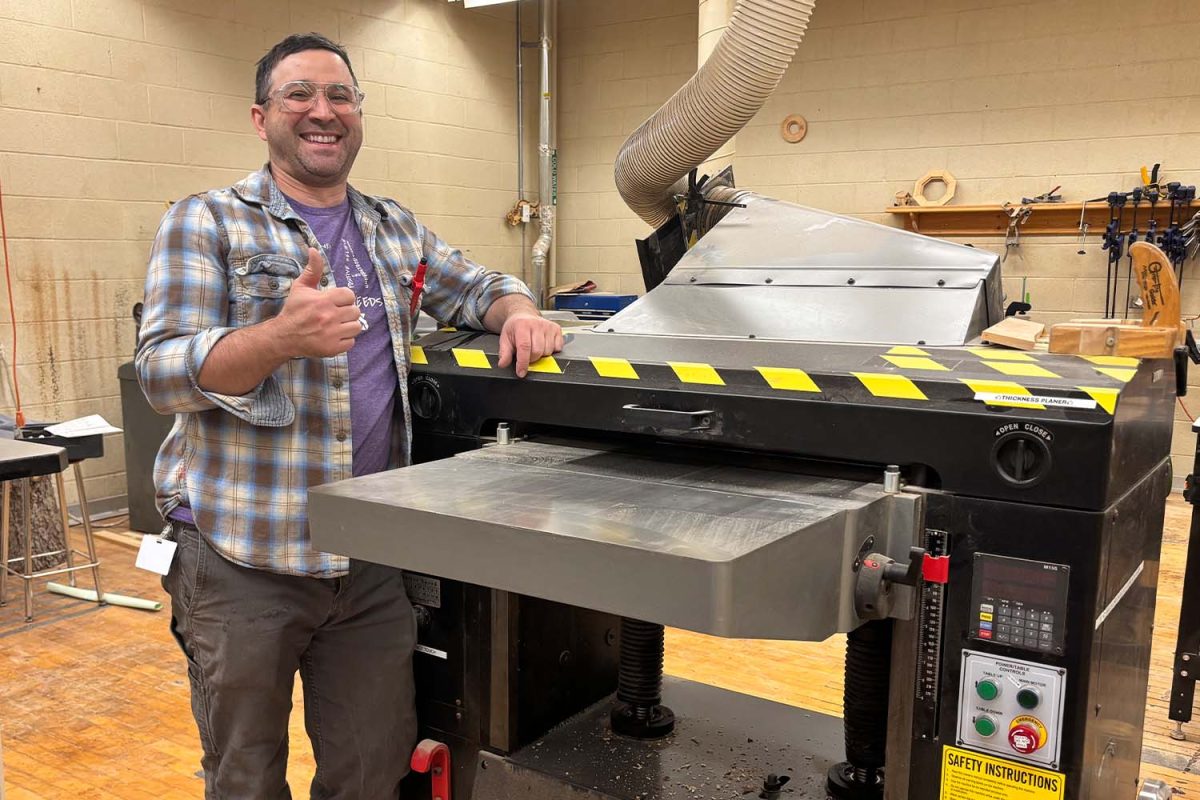Strath Haven is deciding what to do about cell phones.
On October 29, Interim Superintendent Dr. Jim Scanlon held an educational phone forum at 6:30 p.m. in the Strath Haven Middle School Auditorium.
Scanlon put together a panel that included two high school students, SHHS Interim Principal Mrs. Andrea LaPira, SHMS Principal Dr. Chris Matsanka, English teacher Matthew Wood, two parents from the WSSD community, a researcher, and a leader of a group partnering with schools on mental health policy.
“It’s a good first step in trying to educate people on [the] responsible and reliable use of cell phone and technology because it’s not going to go away,” Scanlon said. “But there are some dangers to too much exposure, and we have to find that balancing point between all of that.”
Scanlon selected Dr. Matthew Kearney, associate director of Penn Medicine Mixed Research Lab, to discuss the impacts of phone use on adolescent health.
“The long-term cognitive development is that, ultimately, that phone becomes a real piece of your core identity,” Kearney said.
The panel also included Mrs. Laine Whitaker, Vice President of Professional Learning at Effective School Solutions, to discuss phones’ impact on students’ mental health. Effective School Solutions is an organization that partners with school districts to help them implement effective mental health programs.
“I noticed what this forum really is about, that they’re engaging all the stakeholders involved,” Whitaker said. “They’re going to make a decision, I’m sure they’re going to explain how they arrived at this decision, and now explain what the expectations are going forward, so everyone’s clear.”
On the panel as well were two students, seniors and elected school board representatives Tianyue Wang and Linden Corbett, who commented on their experiences with cell phones throughout their high school years.
“I think it does differ from kid to kid, and I do think as I’ve grown up and gone through the high school, I’ve seen that there’s been a reduction in phone usage,” Corbett said. “But I think there’s been an increase in AirPod usage and a lot of just having one AirPod in at all times.”
English teacher Mr. Matthew Wood was included on the panel and believes that phones have gotten more invasive over the years.
“For what I observe as a teacher, the core problem here is that [there are] students who just really can’t help themselves,” Wood said. “I think [I’m] comfortable saying the general consensus is that we need to do something.”
One of the topics at the forum was WSSD’s own electronic device policy, which prohibits cell phones during instructional time but allows them otherwise. Different teachers, however, regulate the policy to different standards.
“From what I heard at the forum tonight, there seems to be no clear-cut policy or standard in each classroom for expectations of cell phone usage,” community member Lindsay Davis said. “What would be helpful to both teachers and students is setting clear expectations so that everybody knows what that policy is and how to follow it.”
This school year marked the beginning of the “Screens Off, Minds On” initiative at the high school, spearheaded by Interim Principal Mrs. Andrea LaPira. The initiative focuses on enforcing WSSD’s current policy, and LaPira believes that uniformity is important regarding the regulation of phone use.
“We’re either all in or we’re all out,” LaPira said. “Do we want this change, or don’t we? Because nobody wants to be the one teacher who’s enforcing the rules. We need to be a united front.”
Some teachers, like science teacher Mr. John Lincke and social studies teacher Mr. Pat Keaveney, have utilized phone caddies in their classrooms to help curb phone use, according to Wang and Corbett.
Haven Hold the Phone, a parent group concerned over cell phone use at Haven, has been advocating for a total ban on cell phones in WSSD schools and has recommended the use of Yondr pouches to lock cell phones.
Not all in the community are ready for a total cell phone ban, however.
An argument against banning cell phones has been that the phones are necessary for communication between students and parents during emergency situations. Wang stressed the importance of this, referring to past incidents at Strath Haven of a bomb threat and a student bringing a fake gun to school, causing a lockdown.
“I would be strongly opposed to a total ban,” Wang said.
LaPira expressed satisfaction with the current enforcement initiative.
“As a principal, my job is to enforce the policy that’s currently in place,” LaPira said. “Screens Off, Minds On is an enforcement of that. If we were to go to a full ban, we would certainly support that. I don’t always believe in a one-size-fits-all model.”
Strath Haven Middle School, under the leadership of Matsanka, has implemented cell phone regulations similar to those advocated by Haven Hold the Phone, offering a potential preview of what a ban at the high school could look like.
“We made our policy from 7:50 [A.M.] to 2:30 [P.M.], the kids can’t have their cell phones out,” Matsanka said.
Matsanka noted the difference the change made.
“It’s night and day compared to previous years,” Matsanka said.
One reason commonly used to support a full ban is the idea that cell phones are ruining social interaction during lunch and recess.
“I want more kids at lunch and recess to socialize,” Matsanka said. “That’s my bigger issue. Middle school [is] a perfect time to make friends, and that just wasn’t happening.”
Matsanka pointed out, though, that the school has put emphasis on messaging as opposed to enforcement. And he takes no issue with kids communicating with their parents while at their lockers.
“You could check your phone to see if a parent texted you or someone texted you and respond at your locker, as long as you’re kind of standing there, then that’s a totally acceptable use of technology and the right use of technology,” Matsanka said. “So I think there is an aspect of us trying to teach kids the right way of using their phones.”
Corbett highlighted the importance of engaging students in the conversation about how to handle devices at Haven.
“My takeaway on how to best engage students is to really appeal to our personal stakes in this issue,” Corbett said. “Just increasing that awareness and increasing the idea that this is for our benefit, as well as everybody else’s, is really important in this issue.”

















